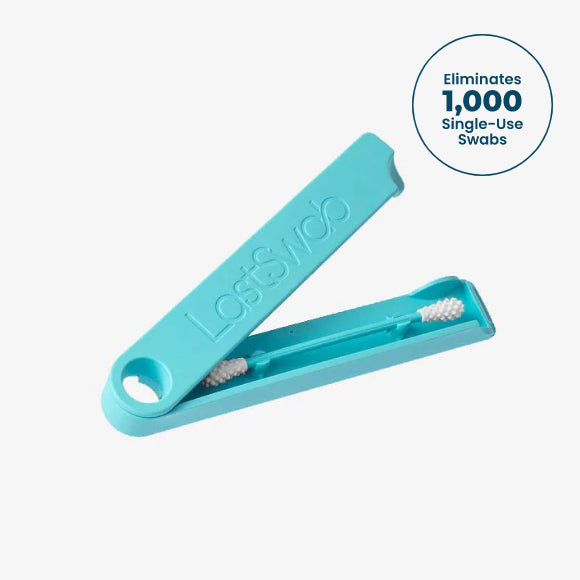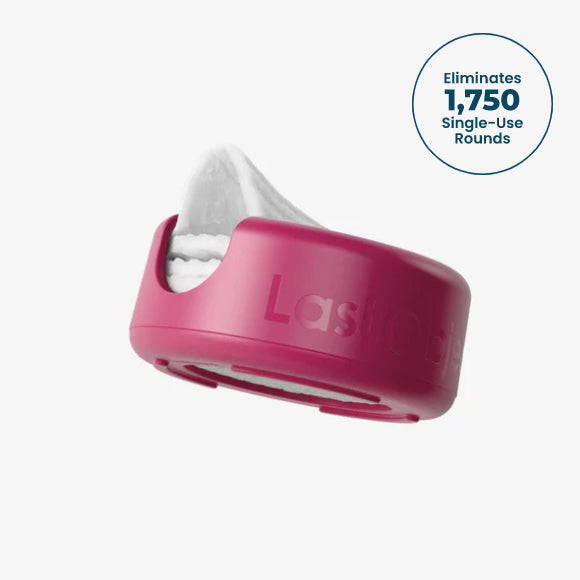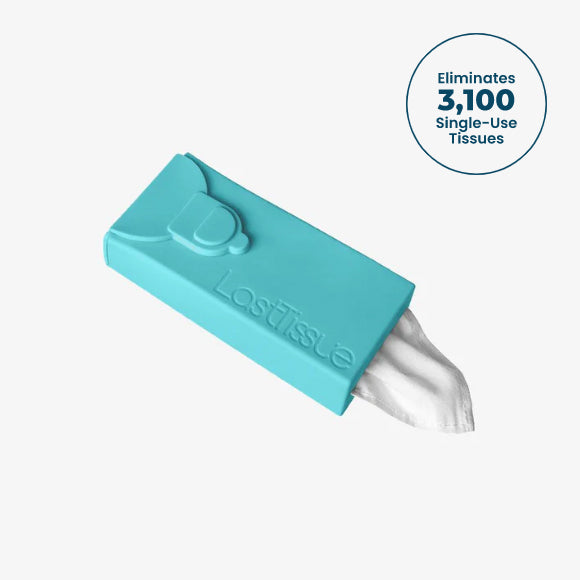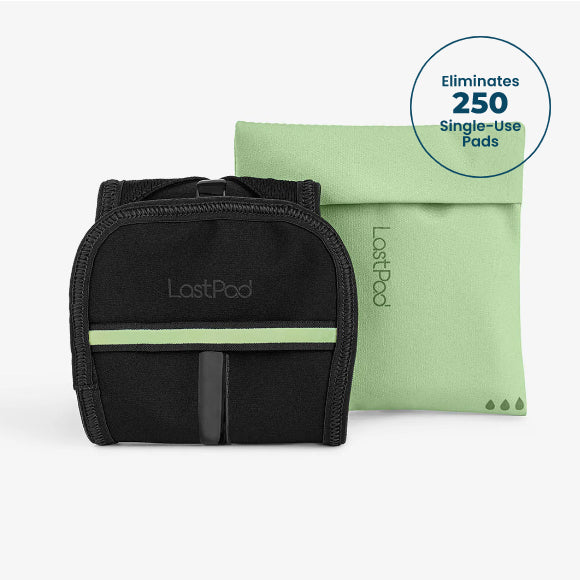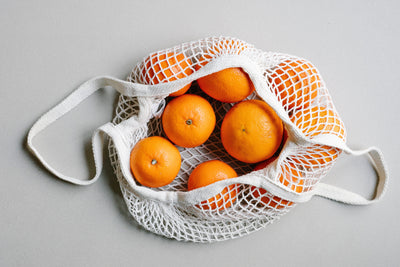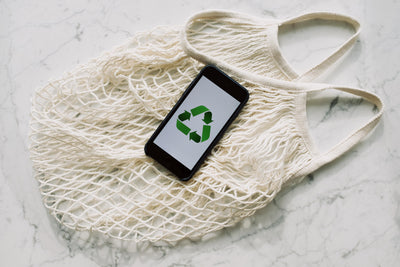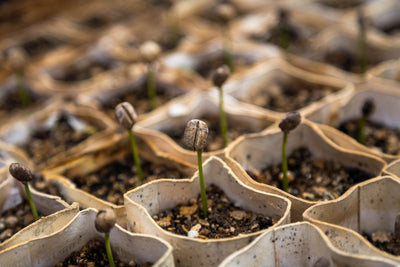How to Save Money by Going Green
March 09, 2020Going green can often seem synonymous with spending copious amounts of money in the name of helping the earth. Good for you if you don’t mind, but it never hurts to spend a little less unnecessary money.
A lot of us may picture overpriced products paired with the justification of being eco friendly. One hundred dollars for a toilet scrubber made from bamboo? Sold!
It is certainly true that businesses have acknowledged the market of sustainable products.Thus symbolizes the dawn of greenwashing. Luckily though, this doesn’t mean going green has to be expensive, especially when done right.
Let's look at solutions to going green on a budget.
Buying reusable versions with one single price tag

Single use items started out of convenience and they have stayed popular partially because companies can make more money selling them.
When we buy a product that is able to be reused over and over, eventually that product will reach a point where we begin to save money. Money that we otherwise would have been spending on a single use product. There are tons of reusable products that save money!
When we replace paper towels in our kitchen with a rag, the price of that rag is paid for (based on number of uses) and we then start saving money. You heard me, saving!
Another great example is a reusable water bottle. We can save a lot of money due to the cheap cost of tap water or even freeness of public water supplies. Especially in contrast to the huge cost of bottled water.
Not to mention, in countries like the U.S., tap water actually has more water quality standards than bottled water. Tap water is so in. See ya later bottled water.

The list goes on for reusable options that save us money or at the very least are a comparable price.
What about when companies pay for the single use items, how do we save then? Well, companies pay for those items so they shouldn’t mind when you bring your own. A lot of places actually encourage it by offering discounts!
This not only boosts their green points in marketing, but they also aren’t losing much from the discount compared to what they may be saving by using fewer disposable products.
Some examples of this could be having your own coffee cup (lots of cafes offer discounts), bringing your own grocery bag (avoiding fees, or also getting discounts), and so on.
Making your own products

Companies have to make a profit, of course. So when we are buying certain cleaning or personal care products we are simply paying money instead of spending the time to make them ourselves.
For those motivated and willing to spend the (often) little time required, making our own products could be a great option. You can make cleaning products with simple ingredients like baking soda and vinegar, or personal products with whatever ingredients you choose. Look for another blog post on that!
Since we are able to make these in bulk, we can actually save a lot of time and money compared to buying the finished products normally.
Reducing our consumption

Ahh yes, the OG of going green on a budget. Or rather, the type of going green because you’re on a budget. What?! This one sounds basic and simple but is ultimately what helps the planet and our wallets the most.
When we are consuming less, we are buying less, and usually when we are buying less (unless we are trading with goats or something)we are spending less money. This is so simple yet often forgotten.
We get caught up in what businesses want us to think "going green" is. Which is “buy this thing and you’ll help the world”. It’s worth noting at LastObject we are proud to sell along the lines of “buy this thing if you are otherwise going to use this other single use thing”. If you don't use cotton swabs, you probably don't need a LastSwab!
The reality is, buying less is always better. If you go about your day never needing a water bottle because you have glassware constantly by your side (you fancy pants), then don’t feel the need to buy one!

I say this is the OG of going green because this is how things used to be. We didn’t buy stuff we didn’t need, partly because it just seemed like a waste, but also because we simply didn’t have the money to do so. We live in a very comfortable era. Yet, it's probably the most discontented era as well, why’s that?
There seems to be voids in our lives that we are trying to fill with stuff. Those voids will look different for everyone, but trying to fill them with stuff is like dying of thirst and instead of drinking water we are drinking chocolate syrup or air. They both have their uses, but they will never quench our thirst.
Buying things

No I don't mean buy things in order to save money.
A lot of times the cost of ethical and sustainable products have a price tag above normal.🏷It can feel like someone just stabbed us then charged us money for the service.
“That’ll be twenty dollars please”
First things first, let’s look to the past for some insight. The stuff we used to buy used to last a long long time. And because of this, yup you guessed it, the stuff we bought was more expensive. When using the example of clothing or shoes, this translates to a more affordable cost per wear. Meaning, fast fashion alternatives are actually cheaper in the end.
This is because when we buy a quality made product, that price will be stretched across much more time. AKA, we save money. When we buy a piece of clothing that is cheaper but doesn’t last very long, the cost per wear ends up being actually higher.

We've also been buying stuff avoiding the true cost. When a product is made so cheaply, that doesn’t just happen magically. This is usually achieved in two ways:
One is by manufacturing in a way that puts the burden on the earth instead of in the price tag. The less environmental standards, the cheaper something typically is to make. The cost is shifted on to the earth.
Two is by exploiting workers via terrible working conditions (which costs less) or giving very very little pay, which obviously costs less. The cost is shifted onto human beings.
The true way to go green with our stuff isn’t to buy a bunch of cheaply made “eco friendly” products, it’s actually to buy fewer, high quality, fast fashion alternatives which will last much longer.
I know I know, we humans are not great at stomaching up front cost to save later. For those feeling hesitant about this, explore the math and decide for yourself if this lifestyle makes sense to you.
In conclusion

We can certainly make going green as expensive as we want. We can also make going green more like making life simpler.
When we focus on simplifying our lives in a green way, the changes will certainly be cost competitive to the less sustainable version. We may just find, when done right, going green can actually save us money too! How crazy?!
By getting rid of the clutter, getting rid of the waste, and ridding of the unnecessary, we are setting ourselves up to save not only money, but stress, discomfort, and the earth as well.
MORE Going Zero Waste ARTICLES View all ›
Ready to make
the switch?
- Powerful Cleaning
- Dissolves Easily
- Skin-Friendly
- Eco-Friendly
- No Mess





